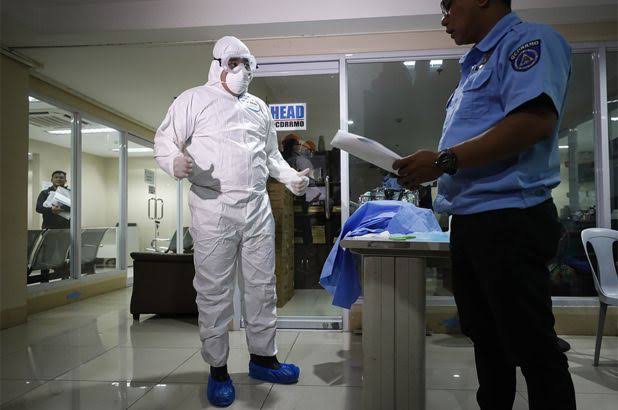Japan is set this week to revise a law allowing Prime Minister Shinzo Abe to declare a state of emergency over the coronavirus if needed.
The report says as he takes heat for his handling of the outbreak ahead of the Tokyo Olympic Games.
In perhaps his biggest test since returning to office in 2012, Japan’s longest-serving premier has been accused by critics of initial lack of leadership then over-abrupt steps like school closures that left parents and employers scrambling.
“Japan has over 1, 200 coronavirus cases including about 700 from a cruise ship, 16 people have died, including seven from the liner,’’ public broadcaster NHK said.
Among criticisms is that Abe’s government was too slow to curb visitors from China, a big source of revenue after the outbreak originated there.
In an opinion poll released by NHK, 43 per cent said they approved of Abe’s handling of the outbreak, versus 41 per cent who did not.
Commentators have also said Japan lacks sufficient capacity to test for the virus while failing to mobilise what capacity it has, leading to suspicions that the virus is spreading faster than data show.
Vigorous testing programmes in countries like South Korea have detected high numbers of infections.
“Speculation denied by organisers is swirling that the outbreak will scupper Japan’s dream of hosting the Tokyo Olympics, especially if a state of emergency is declared.
“I want the Olympics to succeed more than anyone, but the negative factors are increasing,” Yoichi Masuzoe, a former Tokyo governor who was health minister during a 2009 influenza epidemic, told Reuters.
In NHK’s opinion poll, 45 per cent said the Tokyo Olympics cannot be held as planned, versus 40 per cent who said they can.
The government plans on Tuesday to submit to parliament a bill to revise a 2012 law, enacted after the 2009 epidemic, so it can be applied to the coronavirus if necessary.
Parliament is expected to sign off on Friday.
The 2012 law was enacted while Abe’s Liberal Democratic Party was in opposition.
Officials have said it could not be applied to the coronavirus without changes, although opposition parties and other critics say reinterpreting it is enough.
The law would let the prime minister declare a state of emergency if the disease poses a “grave danger” to lives and if its rapid spread could have a huge impact on the economy.
The virus is already increasing Japan’s recession risk.
Governors in hard-hit regions could then ask residents to stay inside, close public facilities, expropriate land and buildings for medical facilities and request or order emergency transport of goods.
The state of emergency could last up to two years with a possible one-year extension.
In the virus-hit northern island of Hokkaido, the governor declared a state of emergency late February, although he acknowledged there was no legal basis to do so.
Abe has already requested that schools nationwide close and large-scale events be pared back or cancelled.
“Abe could apply the law by reinterpreting it. He’s good at that,” said Masahiro Kami, head of the Medical Governance Research Institute and a critic of the government’s response.
Abe’s government in 2014 controversially reinterpreted the post-war, pacifist constitution to let troops fight abroad.
“He wants to appeal to the public because things are not going well,” Kami said.
He added the most urgent issue was not further limits on public activities, however, beefing up virus testing and early treatment of elderly and other high-risk patients.
Abe has not made clear what exactly would trigger a state of emergency, repeating that the revision was to prepare for a “worst-case scenario”.
“I suspect Abe doesn’t want to declare a state of emergency because it would be killing the Olympics himself,” Koichi Nakano, a political science professor at Sophia University, said.




 Premier League
Premier League